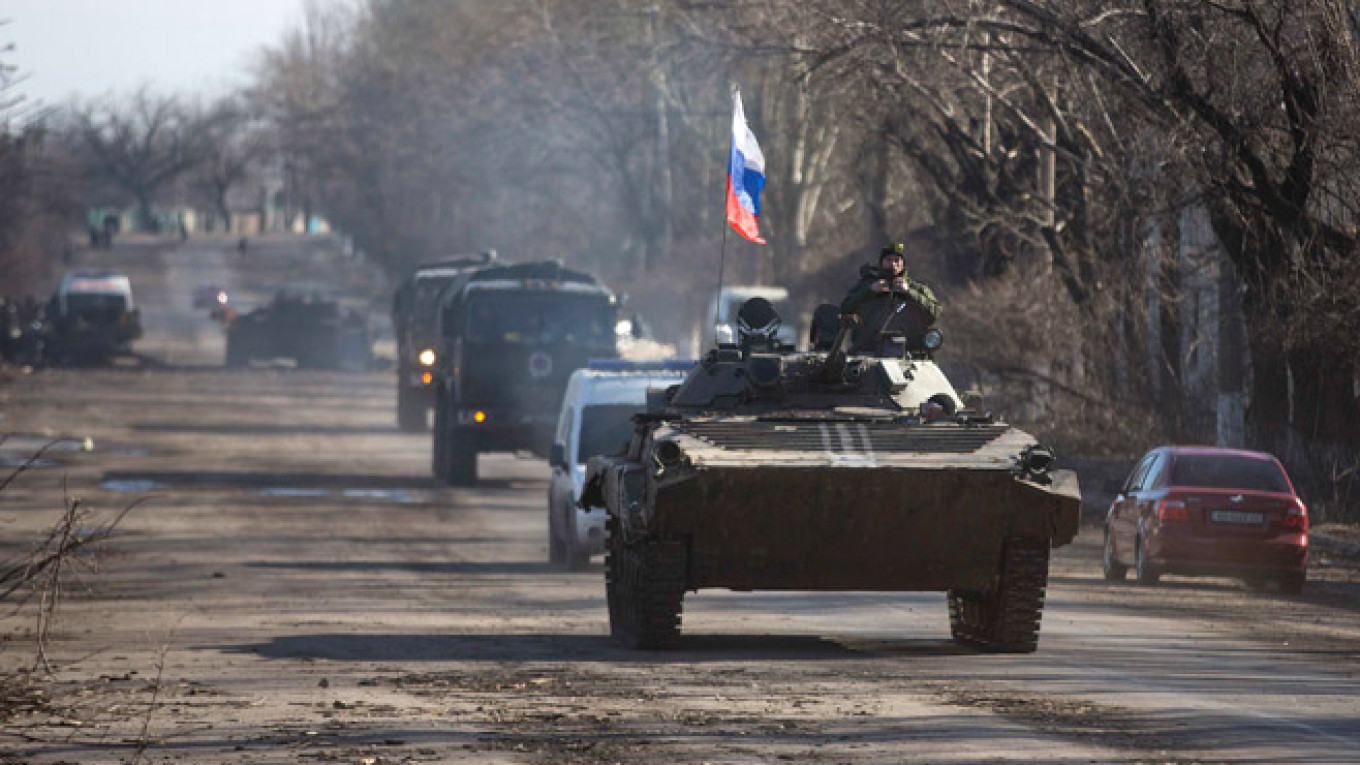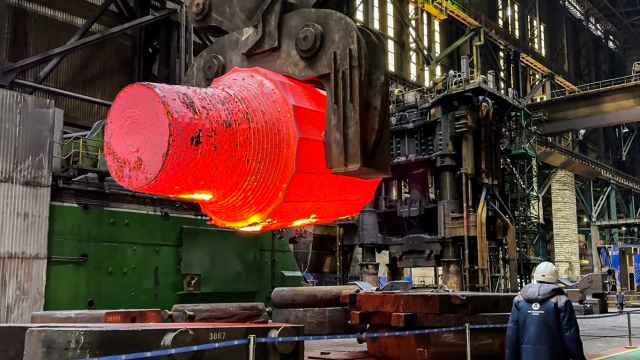The impact of oil prices on the Russian economy is well known. After crude fell 50 percent last fall, the Ministry of Economic Development forecast a 3 percent GDP contraction this year, along with 12 percent inflation. The crash in oil prices will not only test President Vladimir Putin's domestic support. It will upend Russian foreign policy, challenging the modernization of the country's armed forces while diminishing its influence in Asia and Europe.
Russia doesn't just need petroleum to fuel its tanks and planes, but to pay for them as well. Because oil and gas revenues comprise half the federal budget, defense spending is tethered to energy prices.
The slump comes at a particularly inopportune time for the military. Even if its resources were not being consumed in eastern Ukraine, Russia's ongoing initiative to improve its armed forces is extremely costly, with defense expenditures set to soar 44 percent from 2013 to 2016.
Shrinking energy revenues are now curtailing those ambitions by constraining the budget. According to Finance Minister Anton Siluanov, the crash will deprive the Kremlin of $180 billion in 2015 alone.
Despite this shortfall, the Finance Ministry's official stance is to leave military allocations untouched, choosing instead to decimate funding for every other sector. Siluanov himself has admitted that something must change. "When we were adopting the defense program, the forecasts for the economy and budget revenues were completely different," he said. "Right now, we just cannot afford it."
Revenue losses are also damaging the country's foreign trade position, already under pressure from Western sanctions imposed against Russia in the wake of the Ukraine crisis. While the media widely interpreted Moscow's natural gas deals with Beijing last year as evidence of a deepening alliance, they actually reflect an increasingly imbalanced partnership.
Negotiations between the two governments began in the early 1990s, but it was not until last May when an internationally isolated Russia finally agreed to supply gas to China at prices much closer to Beijing's liking than its own. Tumbling oil prices further widened the gap between these countries because China is the largest net importer of petroleum in the world, benefitting at Russia's expense.
The oil crash is not just undermining Russian business interests with the country's allies. It is contributing to the waning of Gazprom's importance in Europe, where NATO members are eager to chip away at the continent's usage of pipelined natural gas from Western Siberia.
Russia's state-owned gas export monopoly had already been hurting — Gazprom's revenues from foreign sales were down 16 percent last year, reflecting the lowest shipment levels in a decade.
To make matters even worse, Russia is losing leverage while it loses money. Until recently, the European liquefied natural gas market had been substantially less attractive than that of its counterpart in Asia, where robust consumption growth and long-term contracts tied to elevated crude prices supported by far the highest LNG rates in the world.
LNG can be shipped from any supplier and is an alternative to Russia's gas pipelines. Two years ago, cargoes landing in Asia were worth 50 percent more than those arriving in Europe. By the end of 2014, this premium had disappeared, worn down by the oil crash and decelerating Chinese demand. In February, LNG priced higher in Europe than in Asia for the first time in more than five years.
Consequently, there are now twice as many tankers bound for European ports as there had been a year ago. This is happening as Russia's neighbors complete landmark investments in LNG import infrastructure.
Lithuania, which traditionally relied on Russian sources for all of its natural gas, now has an LNG intake facility capable of processing 90 percent of national demand, and has already signed deals with Statoil in Norway and Cheniere in the United States. Poland's terminal will open later this year.
All of these factors are subverting Russia's power in the European gas markets, which it wielded throughout the past decade to influence dependent countries.
As the oil slump continues, it is becoming increasingly clear how much of Russia's military, economic and political clout depended on the value of a few interlinked resources. The energy markets have handed the country a crushing combination of setbacks while its friends exploit it and its rivals grow more independent.
Right now, oilmen from Texas to Saudi Arabia are not just drilling the earth. They are sending tremors through the Kremlin.
Wenyuan Qiu is an energy analyst.
A Message from The Moscow Times:
Dear readers,
We are facing unprecedented challenges. Russia's Prosecutor General's Office has designated The Moscow Times as an "undesirable" organization, criminalizing our work and putting our staff at risk of prosecution. This follows our earlier unjust labeling as a "foreign agent."
These actions are direct attempts to silence independent journalism in Russia. The authorities claim our work "discredits the decisions of the Russian leadership." We see things differently: we strive to provide accurate, unbiased reporting on Russia.
We, the journalists of The Moscow Times, refuse to be silenced. But to continue our work, we need your help.
Your support, no matter how small, makes a world of difference. If you can, please support us monthly starting from just $2. It's quick to set up, and every contribution makes a significant impact.
By supporting The Moscow Times, you're defending open, independent journalism in the face of repression. Thank you for standing with us.
Remind me later.






